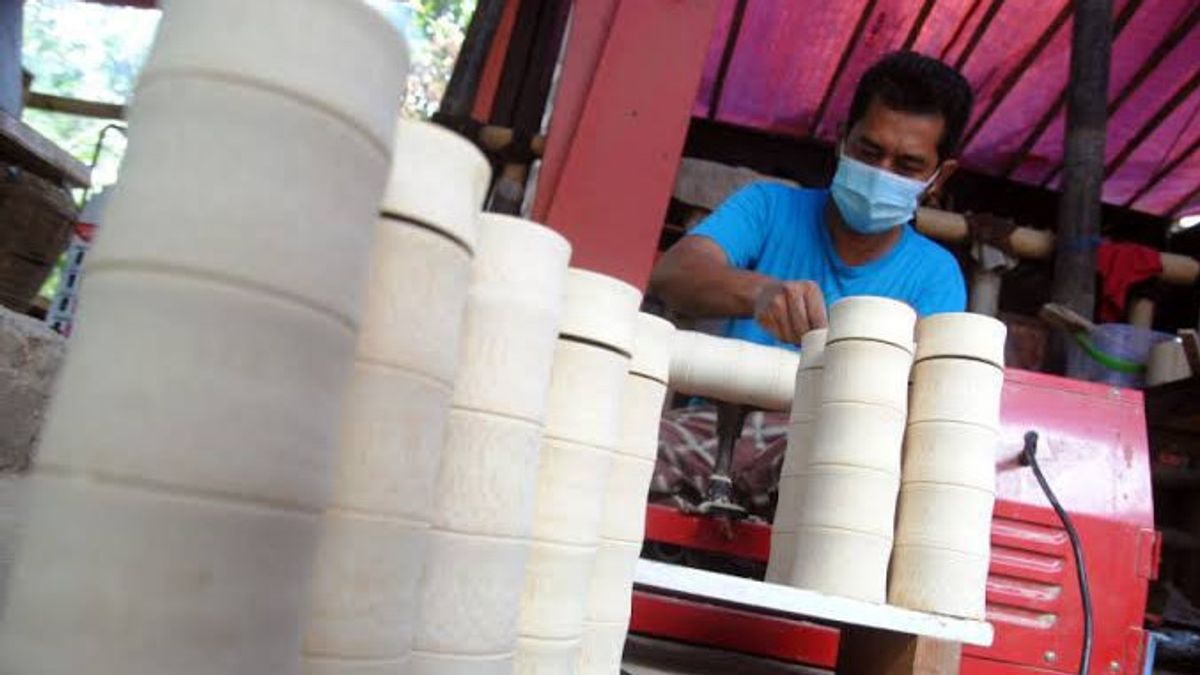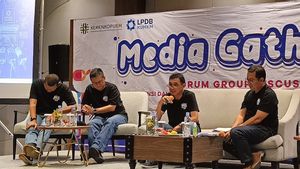The Ministry of Finance (Kemenkeu) together with the Ministry of Trade (Kemendag) have just issued a Ministerial Regulation to regulate cooperation with PPMSE in order to maintain MSMEs.
Director of Customs Technical Directorate General of Customs and Excise (DJBC) of the Ministry of Finance Fadjar Donny Tjahjadi said the Minister of Finance Regulation (PMK) will take effect on October 17, 2023, as one of the steps to improve the customs business process for shipping goods.
He continued, the Ministry of Finance issued Minister of Finance Regulation (PMK) Number 96 of 2023 concerning Customs, Excise, and Tax Provisions on Imports and Exports of Goods sent. The issuance of PMK 96/2023 as a change from PMK Number 199/PMK.010/2019 is part of the transformation of the Ministry of Finance's services in providing clear legal certainty and rules related to customs, excise and tax provisions on imports and exports of shipping goods.
"This is motivated by the increasingly rapid development of the import goods delivery business through postal operators, which needs to be balanced with more advanced service and supervision procedures by utilizing information technology. The services and supervision carried out are also required to be more effective and efficient," said Donny.
The Mandatory partnership between DJBC and Trade Organizers Through Electronic Systems (PPMSE) is one of the new regulatory points at PMK 96/2023. PPMSE will also be treated as an importer of the goods sent from the PPMSE trade.
"In this PMK, it is regulated that the partnership obligation between Customs and PPMSE through the submission of e-catalogue and e-invoice data, so that the determination made by Customs and Excise can be carried out automatically and the customer clearance process can be carried out faster and more accurately. This PMK also regulates the role and responsibility of each party involved, such as recipients of goods, postal organizers, and PPMSE, so that legal certainty can be created and each party can contribute to creating better services," Donny explained in a media briefing quoted on Friday, October 13.
In addition, in order to protect MSMEs and domestic industries, several commodities are also added to commodity groups subject to general/most approved nation (MFN) rates, such as cosmetics, iron and steel products, bicycles, and watches. It also regulates the implementation of a contract note (CN) as a customs notification, differences in treatment for goods sent from trade transactions (self-assessment) and non-official-assessment), as well as regulation of exports of shipping goods.
"We hope that through the issuance of PMK 96/2023 in terms of imports, an increase in the import service of shipment goods will be realized without neglecting the aspect of supervision and correctness of the notification data on the import of shipment goods. Meanwhile, in terms of exports, the issuance of this rule is expected to provide improvements in customs administration for exports of shipping goods. We also urge stakeholders and the public to increase compliance with policies in the field of imports and exports of shipping goods and support the smooth performance of services and supervision of Customs in the field," added Donny.
Director of Trade Through the Electronic System and Trade of the Ministry of Trade's Services, Rifan Ardianto also stated that the synergy between the Ministry of Trade and the Ministry of Finance in regulating the provisions of Trade Through the Electronic System and the improvement of the customs business process will increase consumer protection as well as micro, small and medium enterprises from the invasion of imported products.
According to him, to support the empowerment of MSMEs and trading business actors through the domestic electronic system (PMSE), the Ministry of Trade has issued Regulation of the Minister of Trade Number 31 of 2023 concerning Business Licensing, Advertising, Development, and Supervision of Business Actors in Trafficking Through Electronic Systems which took effect on September 26, 2023.
"This rider also aims to create an e-commerce ecosystem that is fair, healthy, and useful by paying attention to dynamic technological developments, as well as increasing consumer protection," explained Rifan.
Rifan said that the main regulation of the Permendag includes the definition of various business models for the Organizer (PMSE) ranging from local markets to social commerce and the determination of a minimum price of USD100 per unit for finished goods from abroad which are directly sold by merchants to Indonesia through the e-commerce platform.
اقرأ أيضا:
This Permendag also regulates provisions related to Positive List, namely a list of goods from abroad that are allowed to enter Indonesia directly through an e-commerce platform that facilitates cross-border trading and prohibits marketplaces and social commerce from acting as producers.
"The issuance of Permendag 31 of 2023 is expected to overcome problems with unfair trade practices, such as predatory pricing and other unhealthy trade practices, so that the protection interests of consumers and local business actors are maintained, and are able to increase the use and marketing of domestic products. On the other hand, PMSE or e-commerce activities are cross-sectoral activities, so cooperation from various parties is needed in building a conducive e-commerce ecosystem. Rifan. To help MSMEs, the Ministry of Trade also encourages the Proudly Made in Indonesia campaign and this movement is expected to be supported by various parties including the media so that consumers can switch to consume domestic products, "concluded Rifan.
The English, Chinese, Japanese, Arabic, and French versions are automatically generated by the AI. So there may still be inaccuracies in translating, please always see Indonesian as our main language. (system supported by DigitalSiber.id)
















